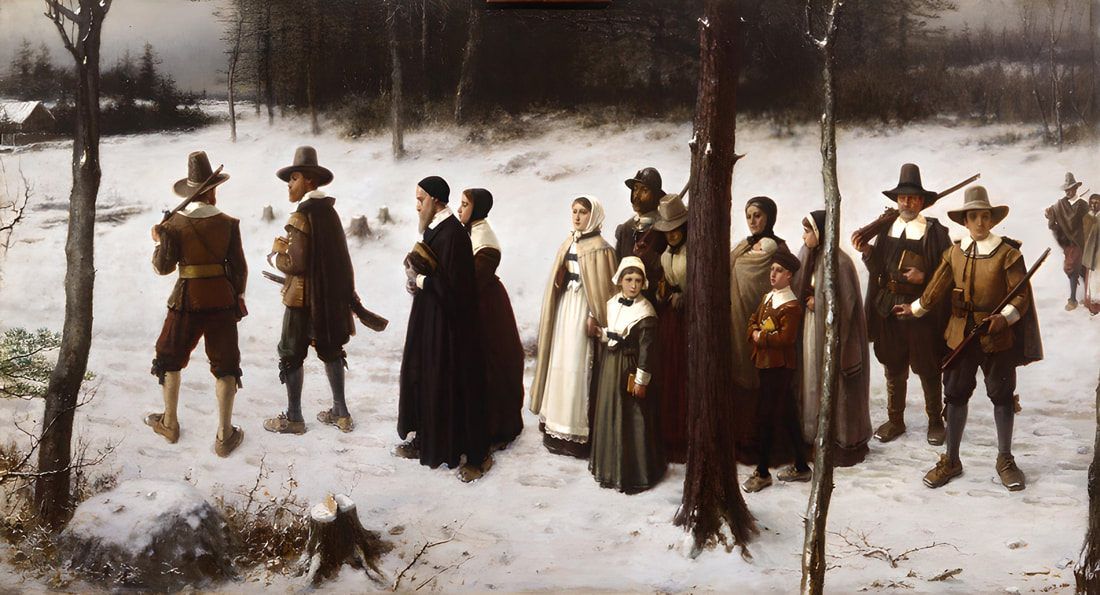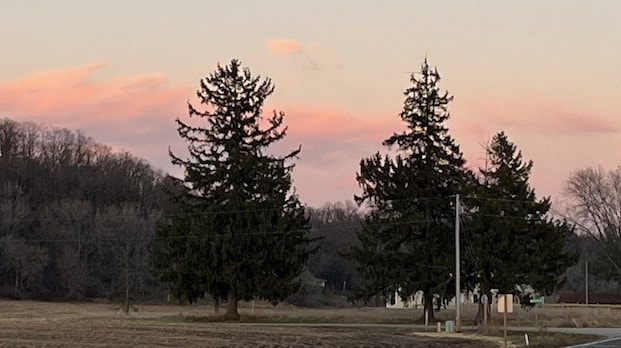|
For a real war on Christmas, think of 17th century Puritans. Massachusetts Bay Colony in 1659 decreed, “For preventing disorders arising in several places . . . whosoever shall be found observing any such day as Christmas or the like, either by forbearing of labor, feasting, or any other way” was subject to a 5-shilling fine. The ban stayed in effect until 1681.
Why did Puritans hate Christmas? Contrary to popular belief, they weren’t stodgy spoilsports who disapproved of pleasure. Less “puritanical” than many later Victorians, they wrote of the delights of the marriage bed. They played a lively game called stoolball, with pitching, fielding, and running. Their objection to Christmas was twofold, biblical and moral. They rejected nonbiblical traditions with pagan roots, including holy days other than Sundays. More importantly, Christmas back then was far from wholesome. Drunkenness, gambling, sexual abandon, and sometimes violence ranked among the “disorders” mentioned in the 1659 ban. Not until the Victorian era did rowdy chaos give way to such family-centered traditions as decorated trees, roast turkey, cards, and gifts. Clement Moore’s Twas the Night Before Christmas (1823/37) and Charles Dickens’s A Christmas Carol (1843) both reflected and reinforced the shift. Whatever your midwinter holiday or none, in the words of Tiny Tim, “God bless us, every one.” Image: George Henry Boughton, The Early Puritans of New England Going to Church, 1867. New York Historical Society.
2 Comments
The tender pinks and blues of sunset nearly compensate for how early dusk falls at this time of year. Some days end with more drama, bright red and orange shouting for attention. Instead, this recent sunset appears to whisper, “Don’t wake the baby.” Baby girls in pink, baby boys in blue, hush-a-bye, sweet dreams.
Pink seems the most feminine of colors. I have friends who love it or hate it for that reason. But parents in the 1800s dressed little boys and girls alike, often in white dresses. By about 1900, marketing for mass production boosted sales by promoting new expectations for domestic life, from vacuum cleaners to differentiated infant wear. Boys crawled in knickers instead of the dresses, laces, and frills of an earlier era. Advertisers tried linking color to gender, with no consensus about which hue went with whom. According to Earnshaw’s Infants’ Department in 1918, “the generally accepted rule is pink for the boys, and blue for the girls.” Most Nativity paintings showed Mary in blue, considered a gentler color. Time Magazine in 1927 found six of ten major American department stores promoted pink for boys and blue for girls, while four recommended the opposite. As soldiers returned from World War II, their brides left factory work to devote their days to family. First Lady Mamie Eisenhower’s love of pink made it a symbol of domesticity. A department store buyer told The New York Times in 1959, “A mother will allow her girl to wear blue, but daddy will never permit his son to wear pink.” Isn’t it odd that today’s era of questioning gender identity and binary thinking also features gala “gender reveal parties,” begun in 2008 by a blogger who now regrets it? Half a century ago, we rarely knew the baby’s sex before birth. Expectant parents might paint the nursery a unisex green to be safe. Now retailers are blending toy aisles formerly labeled for girls or boys. Men wear pink shirts without exciting comment. Will pink and blue fade away as markers of gender, while we still pause to savor them in a winter sunset sky? As a child, I dreamed of knowing everything. Oh, not the future or other people’s thoughts, but the kinds of things you glean from books or school or rooting around outdoors. Curiosity drove me, and what is curiosity but a craving to know more and more? The ultimate, unachievable goal must be eventually to know it all.
I was still a child when the flaw in my fantasy began to dawn. Given all the facts, what scope would remain for exploration? What fun is a jigsaw puzzle when every piece is in place? End knowledge is only one reward of learning. Perhaps equally rewarding is the process of discovery, of synthesizing new material with what I already know. The adult version of my childhood fantasy is to remember all I once knew. To keep it stored in the basement of my mind, retrievable on demand. That’s no more achievable than omniscience but leaves endless room to expand. It’s like working a jigsaw puzzle from the center outward, with no edge pieces to limit its growth. There will always be towns I haven’t visited, stories I haven’t heard, wildflowers I don’t yet recognize, and trails I’ve not yet hiked. I can explore to my heart’s content with no risk of running out. Names matter. Some traditions endow them with magical power, as in the Rumpelstiltskin tale. A new name on entering a religious order can signal a change in status. Companies and not-for-profits rebrand themselves. Individuals change names to better match their sense of self. I try to call people what they prefer, short of “Your Majesty” or “My Lord and Master.”
Fresh sensibilities set off a flurry of renaming. Forts Benning and Hood, named for Confederate generals, are now Fort Moore and Fort Cavazos. In the food aisles, Aunt Jemima is now the Pearl Milling Company, and Eskimo Pie is now Edy’s Pie. The former Redskins are now the Washington Commanders; the former Cleveland Indians, the Guardians. Debate rages case by case over whether historical figures who held slaves should be deleted from institutional names. Names trigger bias even in the well-intended. Faculty evaluations of fictitious applicants Karen and Brian differed on otherwise identical resumes. A friend with a Scandinavian name is abashed to be treated better than her sister, whose name sounds more stereotypically Black. When I changed from a “Miss” to a “Mrs.” long ago, I was startled by the deep chagrin of any who used the wrong term. They seemed to think they’d insulted me. Birds won’t notice when the American Ornithological Society assigns descriptive English names to dozens of species in place of terms referring to people. Birdsongs won’t change, but listeners might. Would a rose renamed “garbageweed” still smell as sweet? That depends on the person doing the smelling. Image: Long-tailed duck, Wolfgang Wander, 2006. Called derogatory “oldsquaw” in the 1900s. |
AuthorI'm a historian who writes novels and literary nonfiction. My home base is Madison, Wisconsin. Archives
July 2024
|




 RSS Feed
RSS Feed